The Interweaving of AI, Arts, and Poetic Imagination: UM Ma Man Kei and Lo Pak Sam College Co-hosts International Summer School with World-renowned Universities
AI·藝文與詩意的交織:澳大馬萬祺羅柏心書院與南大等世界名校共辦國際暑校

In the height of summer in Jiangsu, the “Art, Artificial intelligence and Global Humanities” International Summer School 2025 jointly organised by Nanjing University’s Institute for Global Humanities, the School of Intelligence Science and Technology of Nanjing University, Ma Man Kei and Lo Pak Sam College, University of Macau, and the University of Southampton was held across Nanjing University’s Suzhou and Xianlin campuses. More than forty students and scholars from China, the United Kingdom, the United States, Portugal, and other regions gathered for two weeks of courses and cultural exploration. Together, they engaged deeply with how artificial intelligence is reshaping the boundaries and meanings of art and humanities research, forged lasting bonds, and co-created a refreshing academic experience.
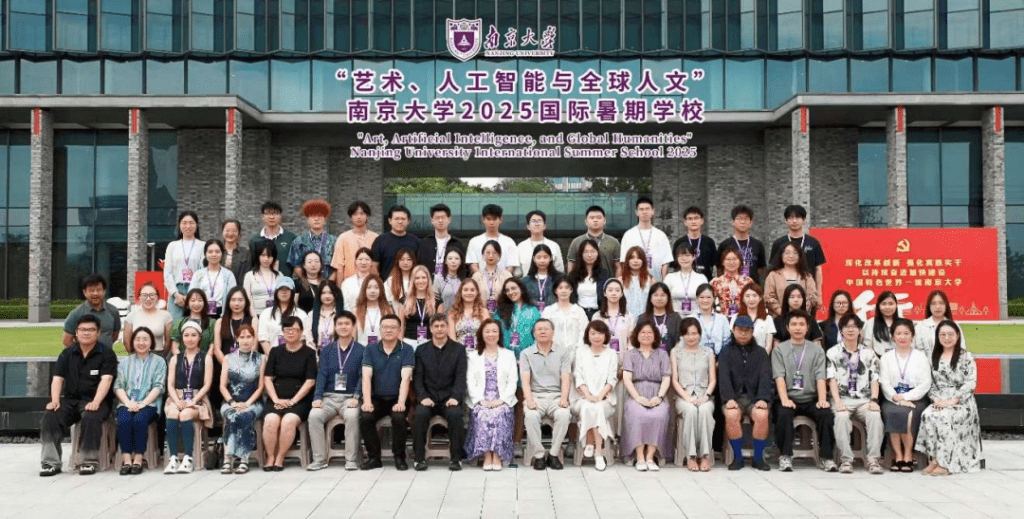


Inspiring Opening Remarks
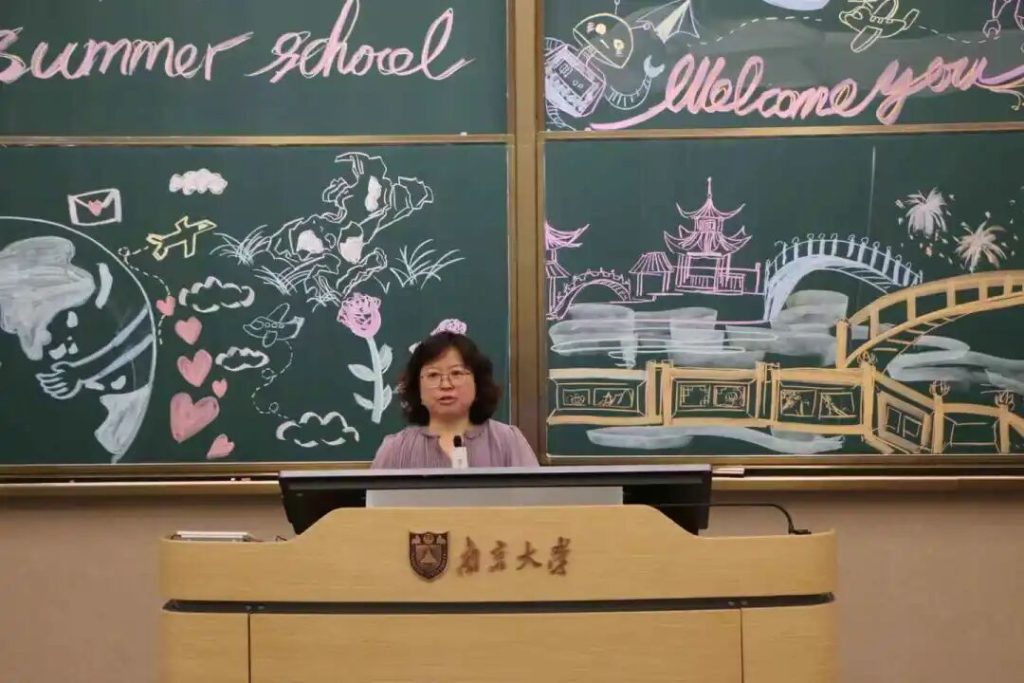


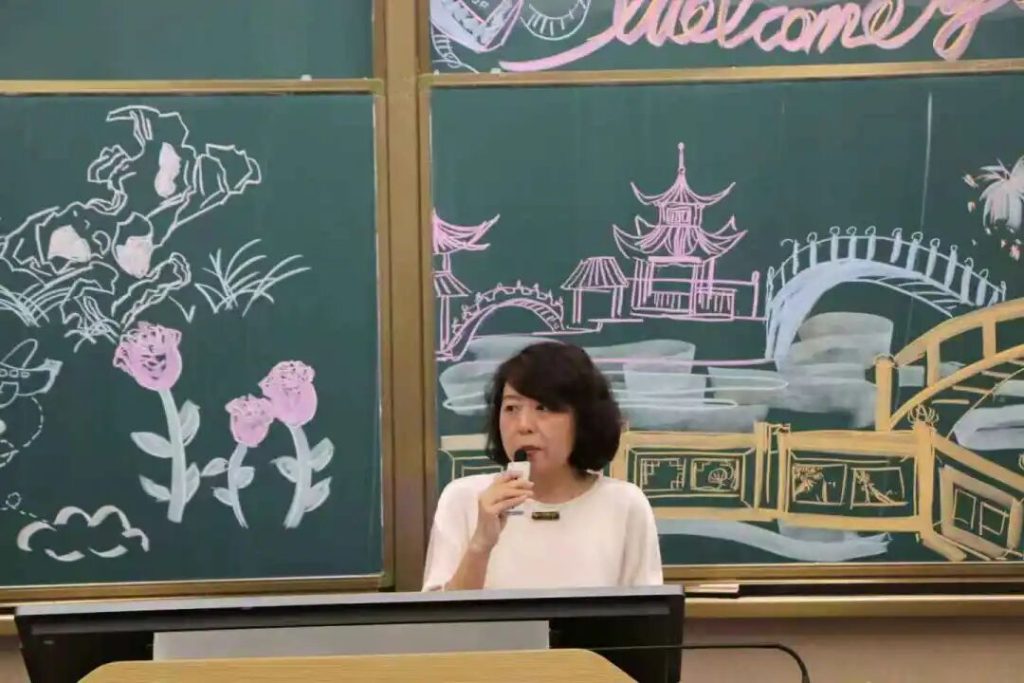


The opening ceremony was hosted by Prof. DU Lanlan, Associate Director of Nanjing University’s Institute for Global Humanities.
Ms. HU Jie, Deputy Director of the Office of International Cooperation and Exchanges, first delivered a welcome address on behalf of Nanjing University. She highlighted the vital role of international collaboration in advancing talent development and academic exchange, noting that this summer programme embodies ambitious goals and offers students worldwide opportunities to learn and connect AI-related challenges.
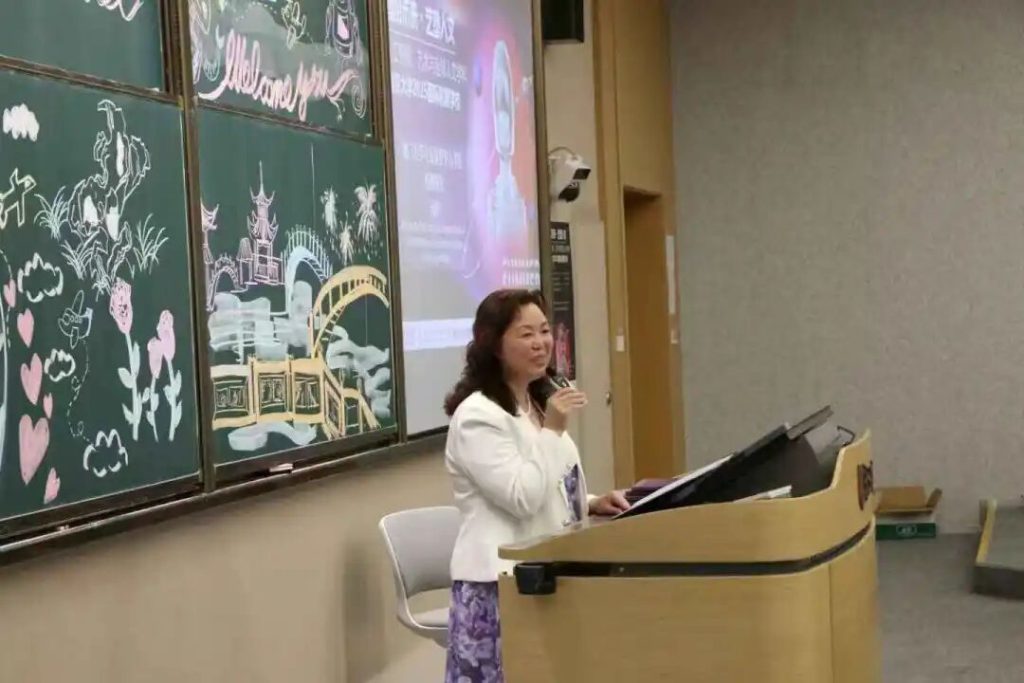


Prof. YANG Liu, College Master of Ma Man Kei and Lo Pak Sam College at the University of Macau, emphasised in her remarks that “In the face of rapid rise of artificial intelligence, we must bring together humanity, innovation, and responsibility. We must appreciate cross-cultural ideas and understand the global nature of the AI revolution, cultivate interdisciplinary collaboration, and learn from history, language, and geographical contexts and cultures—so that scientific rationality, heritage and privacy protection, and the poetic dimensions of life may be harmoniously integrated.”



Prof. DAI Wangzhou, Associate Dean of the School of Intelligence Science and Technology, spoke from the perspective of technology education, stressing the indispensable role of the humanities in STEM. He remarked that the essence of contemporary education lies not in what machines can create, but in how humans and machines collaborate to redefine the true meaning of “creation”.
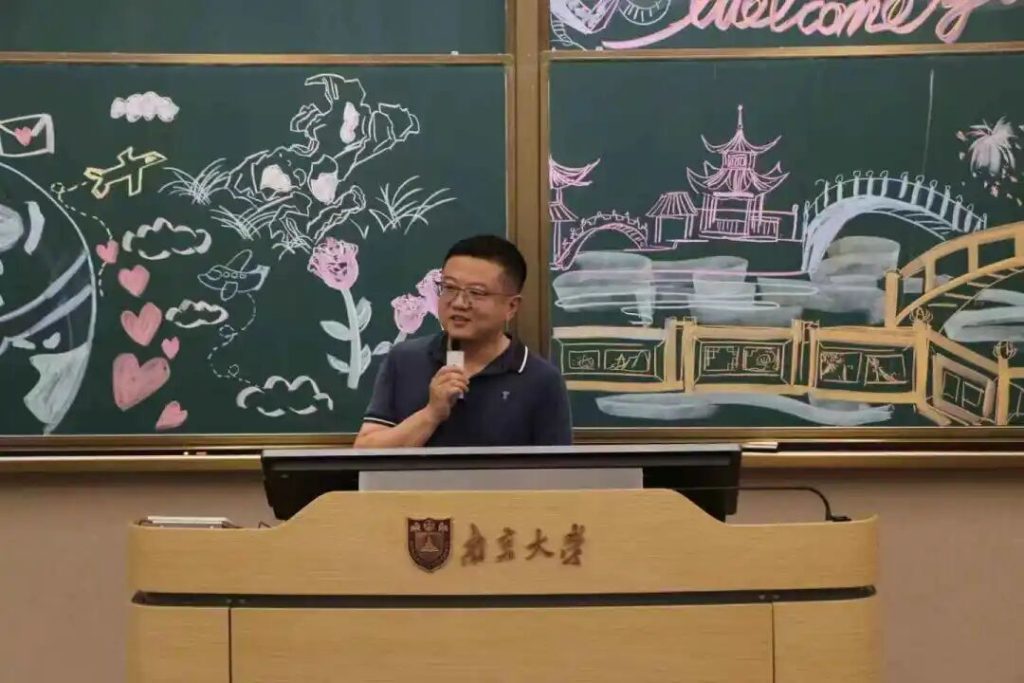


From the angle of talent cultivation, Prof. Pan Bai, Associate Dean of Nanjing University’s Undergraduate School, offered several reflections on the mission and responsibility of universities in the age of AI. He summarised the features of this programme through the concept of the “Three Highs”—high-density learning, high-level of teaching, and high-level of preparation. He encouraged students to prioritise personal growth over the pursuit of success, and to value contribution before recognition, reminding them that these qualities form the true foundation of meaningful global exchange.



From the University of Southampton, Prof. Sunil Manghani reflected on the challenges and opportunities AI brings to the arts and humanities, underscoring the importance of cross-cultural critical thinking in contemporary education. He introduced the course themes and objectives and encouraged students to ask bold, challenging questions. He pointed out that such open-ended inquiry often reveals valuable pathways for exploration—moments where teachers and students can learn and grow together.



Finally, Prof. HE Chengzhou, Director of the Institute for Global Humanities, presented a detailed introduction to the programme’s academic design. He explained that the curriculum focuses on the principles of “cross-culture, cross-discipline, and cross-region,” integrating topics such as AI ethics, digital humanities practice, and innovations in traditional arts. These components aim to guide students in understanding the relationship between technology and the humanities through multiple perspectives. Participants will visit the Suzhou Wu Culture Museum and the Digital Exhibition Hall of the Nanjing Museum, gaining first-hand insights into the interwoven threads of technology and culture.
Prof. HE highlighted the campus’s founding vision—“ Integrating Chinese and Western cultures, linking ancient and modern traditions and outlined its development and future direction. He also presented “Special Contribution Certificates” to the programme’s co-organisers in recognition of their support and dedication.
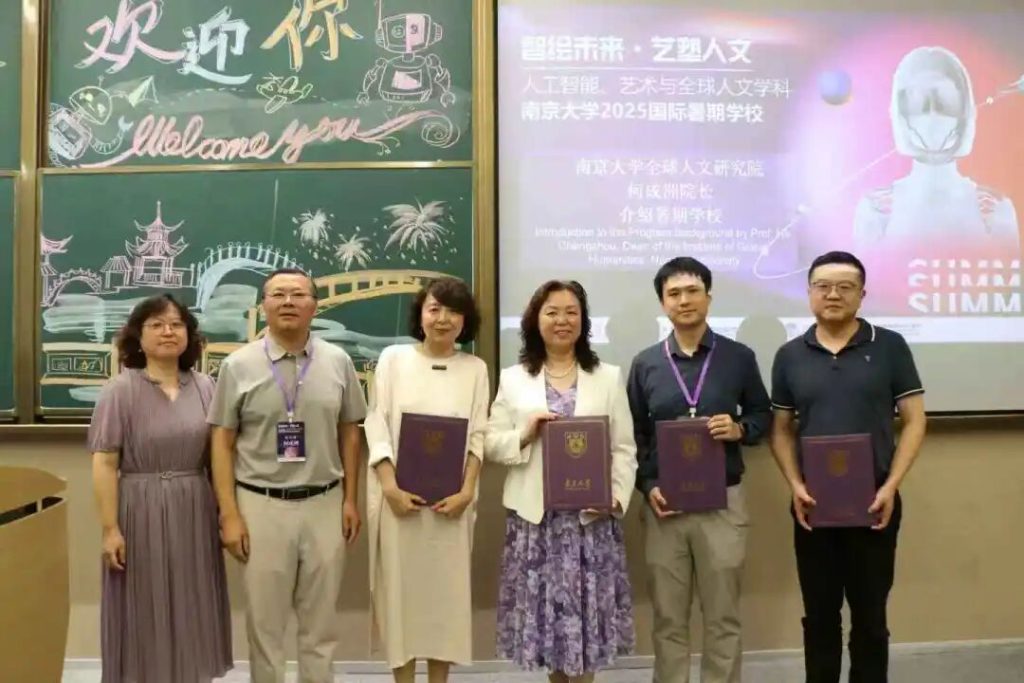


Interdisciplinary Academic Engagement
The first lecture was delivered by Prof. GUO Lanzhe from the School of Intelligence Science and Technology at Nanjing University, with Prof. YANG Liu of the University of Macau serving as moderator. Titled “The Journey of AI: From Origins to the Frontiers,” Prof. GUO traced the evolution of AI from symbolic systems and connectionism to today’s large-model paradigm. He outlined the core ideas and technical pathways, compared their strengths and weaknesses, generalisation, data dependence, and reasoning ability.



Building on this foundation, he explored future directions such as embodied intelligence, neuro-symbolic integration, and AI credibility, and highlighted the key challenges and potential breakthroughs required to achieve Artificial General Intelligence (AGI). Bridging historical insights with cutting-edge developments, he offered a comprehensive view of AI research and its emerging landscape.



Guided by Prof. YANG, students engaged in lively discussion, examining the multiple possibilities of AI’s future from rational and interdisciplinary perspectives. The lecture not only reviewed the historical trajectory of artificial intelligence but also gave insight toward future research directions, reminded us that AI development involves not only technical advances but also profound educational, social, and ethical implications—innovation must be accompanied by humanistic purpose.



AI and the Healing Power of Creativity
Dr. Ka Wai FUNG, Associate Master of Ma Man Kei and Lo Pak Sam College, delivered a thematic lecture titled “Artificial Intelligence and the Healing Power of Creativity: A Journey Toward Well-being.” He emphasised that creativity itself is a powerful healing force that helps students express emotions, relieve stress, and find balance between academic demands and everyday life. Drawing on his experience in residential college education, he shared how AI tools can support students in academic planning, career exploration, and emotional regulation, and illustrated practical applications of AI in enhancing well-being and motivation.



Multidisciplinary Perspectives on AI
Professors from Nanjing University contributed a rich array of perspectives across diverse fields. Prof. XIAO Yineng from the Global Institute of Intellectual Property Institute, Nanjing University examined the copyright and legal challenges arising from generative AI, urging students to consider the ethical responsibilities and institutional boundaries that accompany innovation.
Associate Professors HUO Jing and WANG Shuo of the School of Computer Science transformed abstract computational processes into intuitive artistic expressions through live demonstrations, allowing students to witness how AI intervenes in artistic languages and expands the boundaries of creative imagination. Together, these perspectives created an academic landscape that balances theoretical depth with human warmth.



Humanities, Culture, and the Post-Knowledge Landscape
From the University of Southampton, Prof. Sunil Manghani delivered a three-part lecture series—“The Age of the Technological Singularity: When AI Creates Itself,” “Structuralism, Dreams and Cultural Archive,” and “AI, Knowledge and Electron Life.”
For the lecture “Structuralism and the Cultural Encoding of AI,” He was joined by Prof. Larry Lynch, Dean of the Faculty of Arts and Humanities at Southampton, who engaged in an illuminating dialogue with Prof. Manghani, offering students a richly cross-disciplinary and cross-cultural intellectual experience. Prof. Manghani guided students to reflect on AI’s ethical challenges and cultural implications within the broader landscape of human knowledge, encouraging them to consider how individuals can maintain agency and spiritual freedom amid the sweeping tide of technological transformation.



Games, Culture, and Technology
Lecturer XIONG Shuo from Huazhong University of Science and Technology approached the topic from the lens of game culture, demonstrating how AI functions as a technological medium for cultural transmission. His lecture invited students to rethink the relationship between entertainment and society. He also highlighted that games are not merely entertainment but a cultural language that reflects values and the spirit of the times.



Vibrant Cultural Exploration
This summer programme offered students the opportunity to combine history, culture and technology within the same journey. At the Humble Administrator’s Garden in Suzhou, they immersed themselves in the spatial aesthetics of classical Chinese gardens through VR, while at the Nanjing Museum they observed how digital restoration brings new life and detail to cultural relics. The student also visited the iFlytek Research Institute and Nanjing University’s Embodied Intelligence Lab, observing firsthand the real-world operation of technologies such as speech recognition and robotic perception.






These experiences were far more than simple tours—they were opportunities for students to combine traditional culture and contemporary technology together. Students learnt that history is more than what appears in textbooks, and technology is more than lines of code. In real life experiences, the two can illuminate one another, making learning richer, more dimensional, and more imaginative.



Innovations that Interweave Technology and Emotion



The closing ceremony of the summer school was held on the afternoon of July 12, 2025, at the Du Xia Library on Nanjing University’s Xianlin Campus, hosted by Dr. ZHANG Xun of the Institute for Global Humanities. Prof. HE Chengzhou, Director of the Institute for Global Humanities; Prof. Sunil Manghani of the University of Southampton; and Prof. DAI Wangzhou, Associate Dean of the School of Intelligence Science and Technology, attended the event to witness the students’ accomplishments.






The final exhibition featured six groups of student projects, ranging from generative art and philosophical narratives to interactive game design guided by Associate Professor SHI Ke of the Institute for Global Humanities. Students received strong support from an interdisciplinary team of mentors, computer scientists assisted with technical implementation, while humanities scholars deepened conceptual reflection, embodying the vision of integrating technology with the humanities.



Among the works, the students from the University of Macau demonstrated outstanding interdisciplinary insight and practical creativity. CHEONG Kam Pui and LIU Jinshi contributed to a project that used AI to restore the colours of Han Dynasty stone carvings, constructing a philosophical visual narrative themed around “Heaven–Earth–Cosmos.” Their work blended art history with colour psychology, sparking an imaginative dialogue between the ancient past and the future. LIU Jingting and GONG Zizhuo created the interactive artwork “Have You Ever Seen Yourself?” which integrates facial recognition technology with large language models. Together they designed Ziggr, an AI character that responds to the user’s expressions and words, guiding viewers into a reflective conversation with their own emotions and helping them rediscover their inner voice.






Other teams produced distinctive works: a group reconstructed Han Dynasty pattern through GAN networks to interpret the triad of “Heaven–Earth–Human”; another created a five-act of AI-generated sci-fi drama challenging the idea of technology as a source of faith; one team designed an interactive game, Fire Seed, allowing players to experience the development of AI through gameplay; an international group produced a documentary LAZY? ASK AI examining AI’s value as a tool; and an experimental film, The Six Spirits, reimagined themes from Journey to the West through digital identity metaphors.






A Celebration of Creativity, Inquiry, and Interdisciplinary Learning
This summer school provided students with a platform for hands-on experimentation across disciplines and enabled humanities and technology to intersect in a meaningful and constructive ways. The resulting works not only showcased the power of interdisciplinary collaboration but also inspired students to transform creativity into both academic and artistic expression. Ma Man Kei and Lo Pak Sam College will continue to advance an educational vision that bridges technology and the humanities—ensuring that learning in the age of AI is not only about precision and efficiency, but also about human warmth and the poetic imagination that opened up creativity.






江南盛夏,蟬鳴織雲,由南京大學全球人文研究院聯合南京大學智慧科學與技術學院、澳門大學馬萬祺羅柏心書院與英國南安普頓大學共同舉辦的“AI、藝術與全球人文”國際暑期學校在南京大學蘇州校區和仙林校區隆重舉行。來自中國、英國、美國、葡萄牙等國的40多名師生齊聚一堂,在為期兩週的課程與文化探索中,深入探討人工智慧如何重塑藝術與人文研究的邊界與內涵,結下深厚情誼,共同創造了令人耳目一新的學術體驗。



開幕致辭精彩紛呈






本次暑期學校開幕式由南京大學全球人文研究院都嵐嵐副院長主持。致辭環節中,南京大學國際交流處副處長胡捷首先代表南京大學致歡迎辭,她高度肯定國際合作在推動人才培養與學術交流中的重要作用,認為這次暑期夏校的目標高遠,為世界各國的學子面對人工智能的挑戰提供了新的學習和交流機會。



澳門大學馬萬祺羅柏心書院楊柳院長在致辭中指出,“面對人工智能的迅猛發展,我們須把“人文”、“創新”與“責任”相結合,要傾聽跨文化的智慧,理解人工智能革命的全球性,培養跨學科協作的能力,並從歷史、語言與地域中汲取對人類未來的深刻啟迪,把科學理性、遺產與隱私保護與詩意生活完美結合起來。”



南京大學智慧科學與技術學院副院長戴望州教授從技術教育的角度出發,在致辭中強調了人文學科在科技教育中的核心價值。戴望州教授指出,人文學科為STEM教育注入了不可或缺的靈魂。他認為,當代教育的關鍵不在於機器能創造出什麼,而在於人與機器如何協同,從而重新界定「創造」的真正意涵。



南京大學本科生院副院長潘柏教授從人才培養視角對大會提出了幾點希望,闡述了人工智能時代下大學的使命與責任。他以“三高”文化——即高濃度的學習氛圍、高水準的師資力量與高投入的籌備精神——總結了本次項目的特色,並勉勵學員把成長置於成功之前,分擔应先於分享,因為這正是全球文明互鑒的根基所在。



來自南安普頓大學的蘇尼·曼哈尼(Sunil Manghani)教授則从人文與藝術的角度展望人工智慧帶來的挑戰與契機,強調跨文化思辨對於當代教育的價值。他介紹了自己課程的主題與目標,鼓勵學生勇於提出深刻而有挑战性的問題,指出正是這些「未解之問」蘊藏著珍貴的思辨路徑,也是師生共同成長、教學相長的契機。



最後,東道主南京大學全球人文研究院院長何成洲教授代表主辦方詳細介紹了暑期學校的課程設計理念,他指出,課程以「跨文化、跨學科、跨地域」為核心精神,結合AI倫理研討、數位人文實踐與傳統藝術創新等內容,旨在引導學生從多重視角理解科技與人文的共生關係。學員透過走訪蘇州吳文化博物館及南京博物院數字展廳等地,親身體驗科技與文化交織的脈絡。在談及南京大學蘇州校區時,何院長回顧了校區「融匯古今、貫通中西」的辦學理念與發展歷程,並展望其未來方向。何成洲教授亦為協辦單位頒發「特殊貢獻證書」,以表彰其對項目的支持與付出。



跨越學科的學術探討
首場專題講座由南京大學智能科學與技術學院郭蘭哲教授主講,由澳門大學楊柳教授擔任主持。郭教授以《人工智慧:啟航、邊際與遠方》為題,回顧了人工智慧自符號主義、聯結主義到當代大模型範式的演進脈絡,梳理各大流派的核心思想與技術路徑,並比較其在可解釋性、泛化性、數據依賴與推理能力等方面的優劣勢。



在此基礎上,他進一步探討具身智能、神經符號融合、可信AI等未來發展方向,並指出實現通用人工智慧(AGI)所需面對的關鍵挑戰與可能突破。通過歷史與前沿的交匯,為人工智慧研究與應用描繪出全域視角與未來圖景。



在楊柳教授的引導下,現場師生展開熱烈討論,從理性與跨學科的角度思索技術未來的多重可能。這場講座既回顧了人工智慧的歷史脈絡,也展望了未來的研究方向。它提醒我們,人工智慧的發展不僅涉及技術突破,同時也關聯到教育、社會與倫理層面的深遠影響,科技需要創新,但也需要向善。



馬萬祺羅柏心書院副院長馮家維教授进行了專題講座《人工智慧與創造力的治癒力量:探索幸福之旅》。他指出,創造力本身是一種強大的治癒力量,能幫助學生釋放情感、減輕壓力,並在學業與生活間找到平衡。講座中,他結合自身在書院的教育經驗,分享如何運用AI工具支持學生進行學業規劃、生涯探索與情緒調節,並舉例介紹AI在提升幸福感與學習動機方面的實際應用。



來自南京大學的教授們,從多元領域展開對人工智慧的深入探討。全球知識產權研究院肖藝能教授聚焦生成式AI引發的版權與法律挑戰,提醒學生思考創新帶來的倫理責任與制度邊界。計算機學院霍靜副教授與王碩副教授則透過現場演示,將技術的抽象運算轉化為直觀的藝術表達,讓學生感受到人工智慧如何介入藝術語言,拓展了創作的邊界與想像的可能。這些不同的視角,共同構築了一幅兼具理論深度與實踐溫度的學術圖景。



來自英國南安普頓大學的蘇尼·曼哈尼教授帶來《人工智慧與後知識狀況》《結構主義與AI的文化編碼》《技術奇點與電子生命》三場系列講座。在《結構主義與AI的文化編碼》一講中,特別邀請到南安普頓大學文學與人文學院院長拉瑞·林奇(Larry Lynch)共同主講。林奇院長以其深厚的人文素養與學術視野,與曼哈尼教授展開對話,為學生呈現了一場跨領域、跨文化的思想盛宴。曼哈尼教授引導學生從宏觀的知識地景中審視人工智慧的倫理挑戰與文化意涵,並邀請學生反思在科技浪潮中人類如何保持主體性與精神自由。



華中科技大學講師熊碩則從遊戲文化的角度切入,闡述AI如何作為文化傳播的技術載體,啟發學生重新思考娛樂與社會之間的互動關係,為這場跨學科的討論增添了生活化的視角。他同時指出,遊戲不僅是一種娛樂形式,更是一種能夠折射價值觀與時代精神的文化語言。
多姿多彩的文化考察



這次暑學讓學生有機會在同一段旅程中同時走近歷史與科技。大家在拙政園透過 VR 體驗了古典園林的空間意境,也在南京博物院看到數位修復如何讓文物重新展現細節。隨後,他們走進科大訊飛研究院和南大具身智慧基地,親眼觀察語音識別與機器人感知等技術的實際運作。






這些參與不是單純的參觀,而是一次將傳統文化與當代科技放在一起思考的契機。學生們由此感受到,歷史不只是課本上的故事,科技也不只是冷冰冰的程式,它們可以在真實的體驗裡互相激發,讓學習變得更立體、更有想像力。



技術與情感的創新展示



本次暑期學校閉幕式於2025年7月12日下午在南京大學仙林校區杜廈圖書館舉行,由全球人文研究院助理教授張珣主持。南京大學全球人文研究院院長何成洲、英國南安普頓大學曼哈尼教授及南京大學智慧科學與技術學院副院長戴望州教授出席,共同見證學員成果。






結業展覽共呈現六組學生作品,涵蓋生成藝術、哲學敘事與互動遊戲等多種形式,由全球人文研究院石可副教授全程陪同指導,並得到跨學科導師團隊支持:計算機專家協助技術實現,人文學者深化思想內涵,體現了暑期學校「科技與人文融合」的理念。



其中,澳大學生在此次創作中展現出卓越的跨學科思維深度與實作能力。張錦佩與劉金石同學所在小組運用AI技術為漢代石刻文物復原色彩,建構出以「天—地—宇宙」為主題的哲學視覺敘事,融合藝術史與色彩心理學,激發歷史與未來的想像對話。劉靜婷與龔梓卓同學則參與製作互動作品《你見過自己嗎?》,結合面部識別技術與大型語言模型,設計出具備反饋機制的虛擬角色 Ziggr——一位叛逆小孩形象的AI,透過反駁用戶的表情與語句,引導觀者進行內在情緒的對話與反思,尋回自我本心。






其他作品亦各具特色:有小組以 GAN 網絡重構漢代石刻元素,呈現「天–地–人」的哲學敘事;有團隊以 AI 生成五幕科幻劇,反思技術崇拜;亦有學生設計互動遊戲《火種》,在操作中體驗AI發展歷程;來自多國學生的紀實影像《LAZY? ASK AI》探討AI的工具價值;另有實驗電影《六神之作》,以數字身份隱喻重構《西遊記》的文化意涵。






這次暑期學校以跨越學科的形式為同學們提供了難得的學習與實踐經驗,讓人文思維與科技探索真正相互激盪。最終呈現的作品不僅展現了跨學科合作的可能,也啟發了學生如何將創意轉化為學術與藝術成果。它們所呈現的,不僅是一場藝術的展覽,更是一種持續探索人文與科技邊界的好奇心。馬萬祺羅柏心書院將持續推動融合科技與人文的教育實踐,讓AI時代的學習不止於精準與效率,更關乎靈魂的共鳴、心靈的溫度與創造的詩意。


